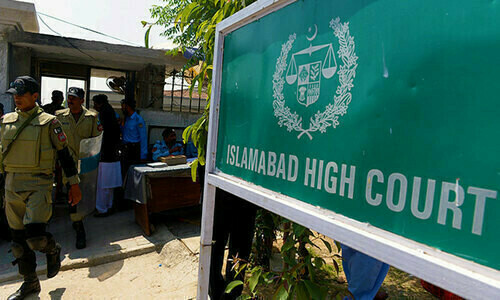Punjab’s new development framework represents the choices the government will make in its budgets over the next four years of its term, noted Ayesha Ghaus, a leading economist and part of the team that developed the related document, a couple of days before the announcement of the provincial budget 2014-15 last week.
The medium-term growth strategy is based on two pillars: revamping and broadening of the present provincial taxes and levies to enhance revenue collection rather than burdening the existing taxpayers and businesses with new taxes; and creation of fiscal space for higher public development investment. The next year’s budget is said to have been prepared keeping these choices of the political leadership of the province.
The government, for example, plans to raise the provincial tax revenues next financial year – the first year of the MTDF – by a hefty 30 per cent to Rs164.7 billion from the original estimate of over Rs126 billion for the outgoing year. The tax growth strategy is heavy reliant on the Punjab Revenue Authority’s capacity to meet its target of provincial sales tax on services of Rs95 billion or 57 per cent of the total tax revenue estimates for the next year. This year’s collection of provincial sales tax of Rs52 billion falls short of the target by more than 16 per cent. This is in spite of 55 per cent growth in the sales tax revenues over the last year’s Rs34.3 billion.
The government has tried to tax the affluent through the Finance Bill 2014/15, which proposes levies on large luxury houses, doubling of the annual motor vehicle tax for and above 1300cc cars and implementation of a levy in the range of Rs20,000 and Rs35,000 on imported cars and jeeps of different engine strength of above 1590cc.
Punjab’s medium-term growth strategy is based on broadening the present provincial taxes to enhance revenue and creating fiscal space for higher public development investment
It shuffles the existing stamp duty rate on transfer of immovable property by one per cent to three per cent and extends the scope of provincial sales tax on service on 10 more services. Still, these measures are likely to produce less than Rs20 billion in additional taxes. Income from agriculture, which is estimated by economists to have a potential of generating nearly Rs50 billion for provincial development against its present yield of over Rs800 million, still remains under-taxed.
On the development side, the fiscal stimulus of Rs345 billion seems as unrealistic and ambitious as the province’s tax target. The budget documents say the annual development programme (ADP) is anchored in Punjab’s Medium-Term Inclusive Growth Strategy and targets to facilitate private sector by ending energy shortages, supporting industrial and agricultural growth through productivity enhancement, institutional and governance reforms, improvement in the security conditions and development of the under-developed regions of the province.
The new budget is significantly different from the past budgets as for as choices the government has made in it, says a public finance analyst working with the government.
“But it is more of the same when it comes to making projections and estimates,” he noted on condition of anonymity.
“Although the budget documents talk about governance, financial and structural reforms, it has little to give hope to the people on this score. Missing the targets is not a problem for me; what worries me more is that our policymakers and political leadership are not doing enough to restructure and revamp the economy either at the federal or provincial levels. No growth strategy can or will work without resolving the long-standing structural issues,” he insists.
Published in Dawn, Economic & Business, June 16th, 2014














































Dear visitor, the comments section is undergoing an overhaul and will return soon.